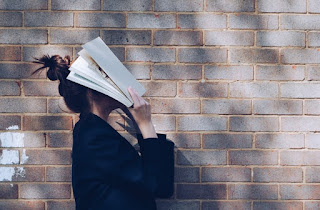If you are wondering that scoring A-stars in IGCSE is a nightmare, then you are wrong. I used to think the same way during the start of my IGCSE, but later I realized that you need a combination of hard work and smart work to ace this curriculum! If I can score A-stars in IGCSE, you can do it too!
1-KNOW YOUR PATH
To start, you need to know what is your syllabus. This is not the "conventional school-exams" syllabus. It is the official syllabus of the topics you will be tested on during the exam. So, google your IGCSE subject along with the subject code.
You will find the official syllabus of that subject on the website of the University of Cambridge. Once you have the syllabus, you have the MAP of leading your journey towards success. Anyhow, you get to know the topics, and specific requirements mentioned in the syllabus. Based on the syllabus, start studying!
The syllabus teaches you what you are supposed to study and what you are NOT supposed to study. Your books are sometimes outdated and may include tons of irrelevant information, which you don't even need. The syllabus gives you clear direction so you don't stick to studying the topics which are no longer part of the exam.
2-DO NOT CRAM
After you have your syllabus of different subjects, you start studying. Using the syllabus, you are also making sure to cover up the required information. But, when it comes to memorization, you should NOT cram. You should not spend tons of hours memorizing one piece of information.
For example, if you have 2 hours study "the atomic structure" (chemistry), spend 1 hour learning the required content and 1 hour practicing the past paper because in the exam, they DON'T test your general knowledge about a topic, instead they test how you can apply your knowledge in different cases of a question!
That's why, regardless of any topic or subject, spend half of the given time studying and half of the time practicing.
3-START PAST PAPERS
You should plan to finish your syllabus at least 2 months before your prior exam dates. Meanwhile, do past papers, which will reflect your preparation. Set a timer, choose any quiet place, and solve the past papers with an exam-style environment.
At this time, most of the students either improve their grades or destroy their grades. This is because many students just solve past papers, but only a few ANALYZE the past papers.
It means that your job is not only to solve like 10 years of past papers; thinking you have achieved everything it takes to score the A-stars. But, you are rather supposed to LEARN from the past papers.
So, whenever I completed any past papers, at the front of it, I would write the difficult questions I came across, understand the marking scheme, identify the chapters of those questions, and check whether my mistake was mathematical, conceptual, or grammatical.
After this short analysis, I would ask myself "what would I do to improve these grades if my exam is in a few hours?" "Surely, I would JUST study the chapters where my mistakes occurred". So, that's why after solving a past paper, go to the book or notes to cover up JUST your weak areas (don't start to revise the entire subject) and then solve the past paper.
I got decent grades by following this strategy with 5 year past papers whereas some of my mates did 10 year long past papers with no analyzing and still regret.
4-EXAM DAY
This may sound irrelevant but most of the students choke on the exam day. Weeks before exams, I used to think like "What if all this hard work goes in vain if anything messes up on the day of the exam" and I am sure most of you think this way. So, to avoid any tension, you need to do be early at the examination venue so you could avoid traffic jams.
Plus, there are tons of students and covid protocols at the venue take a lot of time so want to make sure you are there before the given time. You don't want your important day to be ruined. Also, reaching early means you get familiarized with the environment. Hang around, make some friends (before you enter the examination hall). You get to relax a bit.
When the exam comes, solve those questions which you are sure about. Don't waste time on questions, where you are stuck.
Verdict:
So, I followed these steps and ended up scoring A-stars in Physics, Biology, Chemistry, Maths in the first year of IGCSE. I am still in my last year of IGCSE.
I hope that these tips could help my fellow mates to ace their IGCSE exams. Work hard and smart. If you have any queries, do reach me out and I would be more than happy to help!













2 Comments
I think living with spiritual enlightenment is the best way for mental health.
ReplyDeleteExcellent description for the improvement of mental health
ReplyDelete